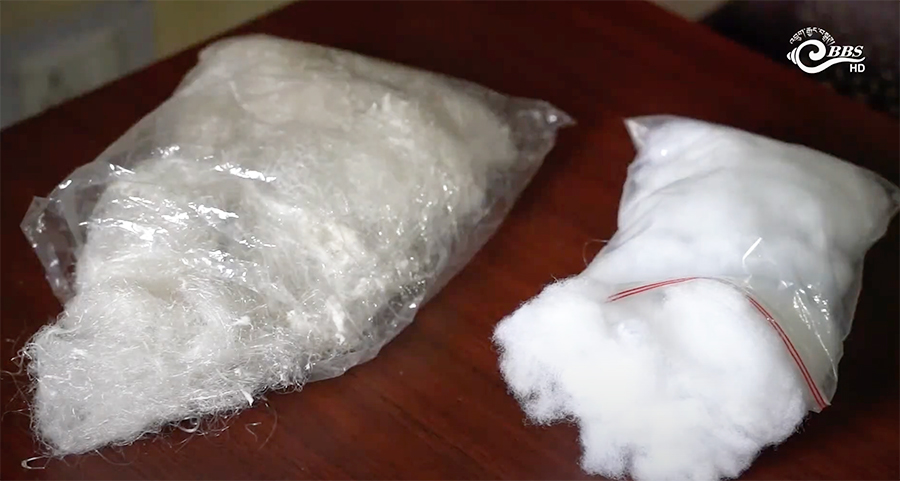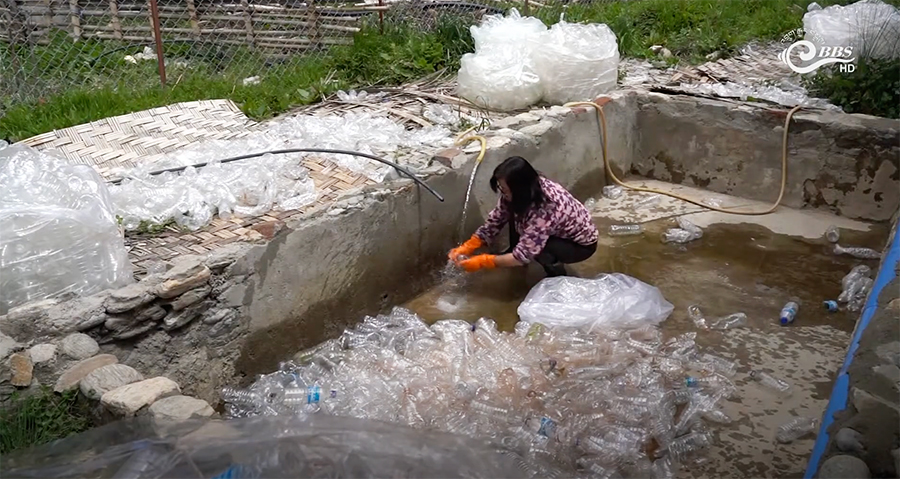 PET bottles that would otherwise end up in landfills or rivers are now being turned into polyester wool. Clean Bhutan, a non-governmental organisation, has initiated a project that gives discarded plastic bottles a new life. The initiative offers an innovative and practical solution to the growing plastic waste problem.
PET bottles that would otherwise end up in landfills or rivers are now being turned into polyester wool. Clean Bhutan, a non-governmental organisation, has initiated a project that gives discarded plastic bottles a new life. The initiative offers an innovative and practical solution to the growing plastic waste problem.
 The process of making polyester wool from PET bottles begins with collecting and sorting the bottles, removing caps and labels.
The process of making polyester wool from PET bottles begins with collecting and sorting the bottles, removing caps and labels.
After thorough cleaning, the bottles are shredded into small flakes, melted at a controlled temperature and then processed into soft, lightweight polyester wool.
 The wool can be used in foam products such as mattresses, cushions, insulation, handmade toys and car seats.
The wool can be used in foam products such as mattresses, cushions, insulation, handmade toys and car seats.
“Through this project, we aim to reduce the number of plastic bottles ending up in rivers, on riverbanks, and in landfills. More importantly, we need to consider the long-term impact of waste on the environment. That’s why we felt it was better to turn this waste into something useful, rather than letting it go into nature. That is why we came up with the idea,” said Nedup Tshering, Executive Director, Clean Bhutan.
Clean Bhutan collects over 500 kilogrammes of PET bottles every day. According to the Executive Director, they currently produce around 200 kilogrammes of plastic flakes every day. One kilogramme of PET bottles can be turned into 900 grammes of polyester wool.
He said that the project will help reduce the country’s reliance on imported polyester wool. While imported polyester wool costs over Nu 400 per kilogramme, Clean Bhutan aims to offer high-quality polyester wool at much lower prices in the local market.
“Manufacturers import wools from India. Therefore, we thought that we could also produce it here and sell it in the market. We plan to sell it for less than Nu 350. In this way, it is helpful for buyers and ultimately for the environment.”
Although 90 per cent of the work is complete, the team is still finalising the product. They expect the polyester wool to be ready within the next two to three months. They are also in talks with the Handicrafts Association and a local handmade toymaker to sell the polyester wool, as they have shown interest.
 The project is being carried out with a budget of nearly Nu 17 M, funded by the PLEASE Project and South Asia Co-operative Environment Programme.
The project is being carried out with a budget of nearly Nu 17 M, funded by the PLEASE Project and South Asia Co-operative Environment Programme.
Sangay Chozom
Edited by Sonam Pem








